Theresa Smith's Blog, page 52
July 1, 2021
Blog Tour Book Review: The Eighth Wonder by Tania Farrelly
New York, 1897. The richest city in the world.
Beautiful, young and privileged, Rose Kingsbury Smith is expected to play by the strict rules of social etiquette, to forfeit all career aspirations and to marry a man of good means. But she has a quietly rebellious streak and is determined to make her own mark on Manhattan’s growing skyline. When the theft of a precious heirloom plunges the Kingsbury Smiths into financial ruin, Rose becomes her family’s most tradeable asset. She finds herself fighting for her independence and championing the ideal of equality for women everywhere.
Enigmatic Ethan Salt’s inglorious circus days are behind him. He lives a quiet life on Coney Island with his beloved elephant Daisy and is devoted to saving animals who’ve been brutalised by show business. As he struggles to raise funds for his menagerie, he fears he will never build the sanctuary of his dreams … until a chance encounter with a promising young architect changes his life forever.
Just when Rose is on the verge of seeing her persistence pay off, the ghosts of her past threaten to destroy everything she holds dear. In the face of heartbreaking prejudice and betrayal, she must learn to harness her greatest wonder within.
From Fifth Avenue mansions to Lower East Side tenements and the carnivals of Coney Island, The Eighth Wonder explores the brilliance and brutality of one of the world’s most progressive eras and celebrates the visionaries who dare to rebel.
Published by Penguin Random House Australia – Michael Joseph
Released 2nd July 2021
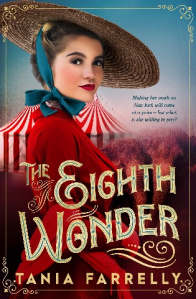 My Thoughts:
My Thoughts:This was a terrific novel, hard to believe it is a debut. The writing is so polished, the story crafted with meticulous and plausible detail, with remarkable characterisation that seemed true to the era. I even just loved the words the author used, so in keeping with the era in which her story is set. I truly felt as though I had stepped back through time.
This Gilded Age era in New York is quite an interesting period of history. It puts me in mind of Victorian London, with the wealth and industrial progress coming to clash with unionisation as the working conditions of industrial workers become increasingly untenable. The suffragette movement was beginning to gain ground in terms of providing places for women to attend that offered education, health and hygiene services. I liked also the mention of the A.S.P.C.A. who were working to protect the welfare of ‘beasts of burden’, in particular, horses. You don’t often see this issue of horse welfare popping up in historical fiction but horses were literally worked to death, pulling carriages and farm equipment prior to the invention of motor vehicles.
There are two key issues within this story, both of which I enjoyed immensely. With Rose, it was her quest to be more than a rich man’s wife. Specifically, an architect, and she had real talent too, but was unfortunately born into the wrong time and place. For Ethan, it was protecting his menagerie of retired/abused animals from the entertainment industry. Now, there are some slightly disturbing scenes in terms of animal abuse within the context of rescue. I didn’t find these gratuitous in any way, but they did make me flinch. Ethan was a wonderful character, I really loved his bond with animals, particularly Daisy the elephant, of course. I have a weakness for elephants.
The Eighth Wonder is an excellent novel, the very best kind of historical fiction where you are immersed entirely into another era for the duration. I loved the originality of it, the rich atmosphere and the authentic characters. This one was a real treat.





Thanks to the publisher for the review copy and the invitation to participate in the blog tour.
June 29, 2021
A Month of Reading: June
Books read in June: 9
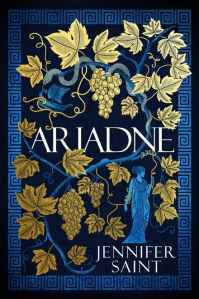
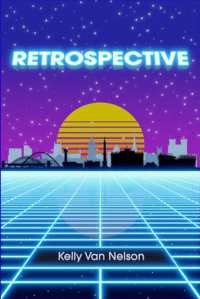
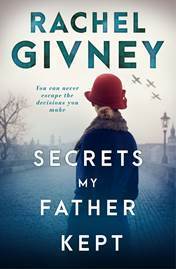
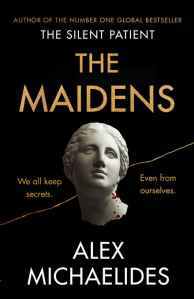
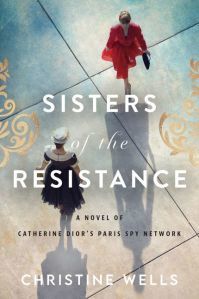
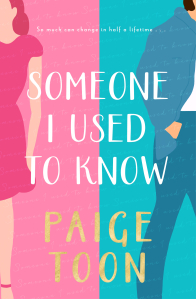
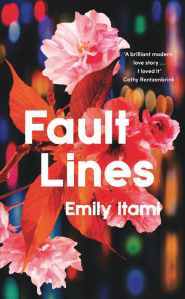

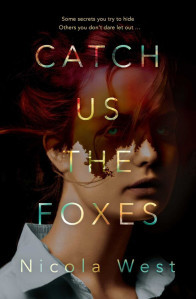
Not as many as I would have liked, I’m still aiming to get back to 12 per month, but they were good reads, so that’s something.
Until next month… 


June 27, 2021
Blog Tour Book Review: Someone I Used to Know by Paige Toon
So much can change in half a lifetime…
Then
At fifteen, George is the foster brother Leah never asked for. As the angry, troubled boy struggles to come to terms with his circumstances, Leah finds herself getting drawn closer to him.
Theo’s wealthy family have mysteriously pulled him out of boarding school and he’s now enrolled at the local state school with Leah and George. When their worlds collide that summer, the three teenagers form a bond they believe will be unbreakable. But life doesn’t always go to plan…
Now
Shocking news brings Leah back to Yorkshire, baby daughter in tow. But Emilie’s father Theo isn’t with them, and George has unexpectedly returned. After half a lifetime, have they healed the scars of their pasts? Will coming back home set their hearts in a different direction?
Published by Penguin Random House Australia – Michael Joseph
Released June 2021
 My Thoughts:
My Thoughts:I loved this novel. All the feels and reading way past my bedtime kind of love. I liken Paige Toon’s novels to looking through a viewfinder; those things a certain generation of us used to have as kids, where you put the round cartridge in the top and press the slide bar down to cycle through the images of the visual story. I used to sometimes slide the bar halfway and you’d get two images spliced and all of a sudden, the story would change. That’s Paige Toon. You think you’re reading this, but actually, you’re reading that. You were always reading that all along, it just looked like this. Those who have read her books will know exactly what I mean and for those who haven’t – get on it. You’re missing out!
Someone I Used to Know is a story about unconditional love, grief and hope. It shines a light on kids in care and gives a no holds barred look at the different kinds of foster homes kids in care may encounter. It’s gritty and real, perhaps a bit more so than Paige’s previous novels, but I liked that and it just served to make it all the more realistic. It’s an emotionally charged read, with characters that are both hard to love and hard to resist, along with others that have hearts as big as they can possibly come. I enjoyed Leah as a character and treading the path of the story in her shoes, both as a teenager and a grown woman.
Billed as a romance, I feel this is more life literature with an epic love story thrown in. There’s definitely a serious edge to it that I appreciated. I particularly loved the epilogue. I’m a completer finisher so being given the full story appealed to that part of me and gave me a solid sense of resolution by the finish. This was such a good book, a standout read that I highly recommend. Oh, and I cried, and that almost never happens!





Follow the #someoneiusedtoknow #feelitall bookstagram tour for more reviews!
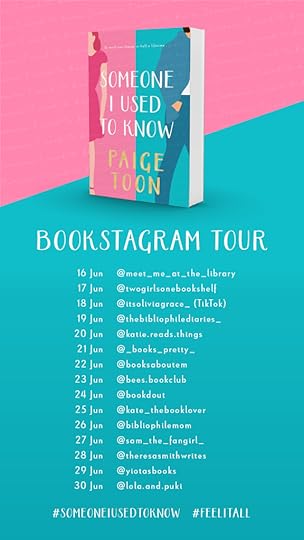
Thanks is extended to the publisher for the review copy.
June 23, 2021
Book Review: Fault Lines by Emily Itami
Mizuki is a Japanese housewife. She has a hardworking husband, two adorable children and a beautiful Tokyo apartment. It’s everything a woman could want, yet sometimes she wonders whether it would be more fun to throw herself off the high-rise balcony than spend another evening not talking to her husband or hanging up laundry.
Then, one rainy night, she meets Kiyoshi, a successful restaurateur. In him, she rediscovers freedom, friendship, a voice, and the neon, electric pulse of the city she has always loved. But the further she falls into their relationship, the clearer it becomes that she is living two lives – and in the end, we can choose only one.
Alluring, compelling, startlingly honest and darkly funny, Fault Lines is a bittersweet love story and a daring exploration of modern relationships from a writer to watch.
Published by Hachette Australia – Phoenix
Released May 2021
 My Thoughts:
My Thoughts:This novel was an absolute winner for me. Intelligently witty with darkly insightful introspection, Fault Lines is the sort of contemporary literary fiction I long for but hardly ever have the pleasure of finding. Stories about affairs are not ones that I usually gravitate to, but I am drawn to Japanese novels and the author of Fault Lines, Emily Itami, grew up in Tokyo, so that prompted me to request this one for review. So glad I did!
‘He’s made me invisible. With all the options I had, I chose him, chose him for life, for living, and he’s frozen me out into an existence that isn’t living at all. I’m in a cage without bars and I’m screaming but nobody can hear. I’m not even middle-aged yet and he’s faded me into the background.’
The writing is pitch perfect and I absolutely loved Mizuki. She comes down hard on herself as a mother but there are scenes throughout this novel that demonstrate just what a terrific mother she actually is, in the moments and instances that matter. Whilst this novel is uniquely Japanese both thematically and within its setting, there was a universal female connection that could be made with Mizuki’s feelings and experiences about marriage and motherhood. In this, Emily Itami has firmly embedded herself into my consciousness as an author of merit. I loved the fact that this novel was about a Japanese woman, set in Japan, living a Japanese lifestyle, and yet, I could totally relate to her despite our cultural variance.
‘Parenting is savage – there is no other activity on earth that you could get up to do four times a night for two years straight, and at the end of it be merely in the running for mediocre.’
Despite its overall short length as a novel, I feel like I travelled such a journey with Mizuki, getting to know her inside out. Her backstory and how this influenced the person she had become was woven into the narrative with seamless perfection. I particularly liked the musings about her years in America and Tokyo as a single woman and how this may have influenced her own cultural connections to the Japanese expectations of marriage and motherhood.
‘Japanese motherhood and its attendant housewifery is a cult, and its initiates take very poorly to anyone who thinks they can enter without going the whole hog. So even though I am a full-time mother with a cupboard full of obento-making accessories, small details indicate cracks in my dedication for which true devotees would like to see me burnt at the stake.’
This novel is funny, whimsical, deeply introspective, intelligent, and achingly beautiful. I really loved it and look forward to Emily Itami’s next novel.
‘He was basically a Care Bear trapped in the body of an underwear model.’





Thanks to the publisher for providing me with a review copy.
June 21, 2021
Book Review: Sisters of the Resistance by Christine Wells
Paris, 1944: The war is nearly over, but for members of the Resistance in occupied France, it is more dangerous than ever before. Twenty-five-year-old Gabby Foucher loathes the Nazis, though as the concierge of 10 rue Royale, she does her best to avoid conflict—unlike her bolder sister Yvette, who finds trouble at every turn.
Then they are both recruited into the Resistance by Catherine Dior and swept into a treacherous world of spies, fugitives, and intrigue. While Gabby risks everything for the man she is hiding from the Nazis, Yvette must decide whether to trust an enigmatic diplomat who seems to have guessed her secret. As the threat of betrayal draws ever-closer, one slip could mean the deaths of many, and both sisters must make choices they might regret.
Paris, 1947: Yvette returns from New York to reunite with Gabby and begin life anew as a mannequin for Dior, who is revolutionizing fashion with the New Look. But first she must discover the truth behind Catherine’s terrible fate, while Gabby finds that there are many kinds of courage, and that love is always worth fighting for.
Published by HarperCollins Publishers Australia
Released July 2021
Thanks is extended to the publisher for the review copy.
 My Thoughts:
My Thoughts:A powerful story of resistance and patriotism set in Paris during the final months of and post WWII. Ordinary women performing extraordinarily brave acts of resistance. Inspired by Catherine Dior’s real life spy network, Sisters of the Resistance is an enthralling novel of heartbreak and hope, truth and deception, love and loss.
Christine Wells has long established herself as an evocative storyteller. Her focus within this latest novel shifts between the final months of WWII in occupied Paris and the immediate years after, when Paris was still feeling the effects of occupation, collaboration, and reprisals. I enjoy novels that include the immediate years after the war, it’s so much more interesting to me than only reading about the war years. The recovery of countries occupied and razed was long and complicated; life did not just magically go back to normal once peace was declared. I enjoyed the way Christine shifted between her two timelines, unfolding the story in pieces.
The two sisters in this novel were motivated to contribute to the resistance by vastly different forces, but both of them demonstrated that all acts, from small-scale to large-scale, made a difference, and were not without risk, the threat of torture and death an ever-present reality. While this novel was inspired by Catherine Dior’s spy network, Catherine herself was a secondary character, with the two fictional sisters at the lead, allowing the author to incorporate the history of Dior without fictitiously tampering with the life of a real woman from history – always a tricky minefield.
Novels about the heroic actions of women during WWII are becoming abundant, but I do think they are far from becoming stale. The heroism of men has been written about for decades without pause. I welcome more novels like this, ones that demonstrate that bravery and heroism was not limited to men, but that both men and women worked alongside each other and together to bring about peace. I am quite certain that there are many more women who are yet to have their stories told. Sisters of the Resistance is a fine addition to this growing historical fiction niche. Highly recommended.




June 19, 2021
The Week That Was…
My week started in a way I never envisaged…with my letterbox being stolen in the night. Isn’t that just the most ridiculous thing? And it wasn’t a fancy one, just a regular old white letterbox covered in dried moss. All up the street on the same side as my house, at least half a dozen houses had their letterboxes knocked askew. I suppose mine was just loose enough to actually come out. I’ve installed a new one, a lot more firmly into the ground, so hopefully that’s the end of that. In weirder pranks though, this morning, there were pillows in the street. Bed pillows, just discarded randomly on people’s front lawns. Stranger and stranger!
~~~
Joke of the week:
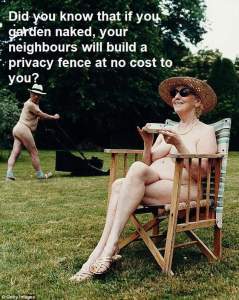
~~~
What I’ve been watching:
The Friends Reunion has led me down the path of all sorts of nostalgia so this week I decided to watch Friends again, from the start. I watched it originally as it came out, episode by episode on free TV, as was the way we watched TV ‘back then’. Despite loving it, I never rewatched it! I’m really enjoying watching it back now – commercial free! I knocked over the first two seasons this week.
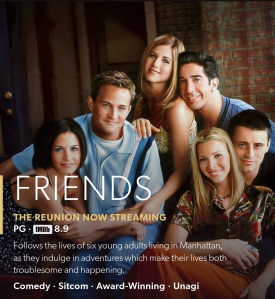
~~~
What I’ve been reading:


~~~
Until next week… 


June 15, 2021
Book Review: The Maidens by Alex Michaelides
St Christopher’s College, Cambridge, is a closed world to most.
For Mariana Andros – a group therapist struggling through her private grief – it’s where she met her late husband. For her niece, Zoe, it’s the tragic scene of her best friend’s murder.
As memory and mystery entangle Mariana, she finds a society full of secrets, which has been shocked to its core by the murder of one of its own.
Because behind its idyllic beauty is a web of jealousy and rage which emanates from an exclusive set of students known only as The Maidens. A group under the sinister influence of the enigmatic professor Edward Fosca.
A man who seems to know more than anyone about the murders – and the victims. And the man who will become the prime suspect in Mariana’s investigation – an obsession which will unravel everything…
The Maidens is a story of love, and of grief – of what makes us who we are, and what makes us kill.
Released June 8th 2021
Published by Hachette Australia – Orion
Thanks is extended to the publisher for the review copy.
 My Thoughts:
My Thoughts:The Maidens is a thriller in every sense of the word. Fast paced, with short chapters designed to keep the pages turning. Each character is layered, more than what they initially appear. The author weaves a convincing web of deceit throughout this novel, ensuring that the protagonist – and the reader – are constantly filled with questioning unease.
Modelled upon a Greek tragedy, the author uses Greek mythology throughout the novel to draw parallels and to heighten tension, but it also served to give the novel a literary feel that I particularly appreciated, which also complimented the Cambridge setting. The reveal of who the murderer was completely took me by surprise – such a clever and disturbing twist. I feel like this is the sort of crime thriller I have been waiting my whole life to read. Brilliantly crafted, gripping and intoxicating, The Maidens is a must read.
Quotable Quotes:
‘A nervous, edgy energy was in the air. A monster with a knife was among them, unseen, prowling the streets, apparently able to strike and then melt away invisibly into the darkness… His invisibility made him into something more than human, something supernatural: a creature born from myth, a phantom.
Except Mariana knew he wasn’t a phantom, or a monster. He was just a man, and he didn’t merit being mythologised; he didn’t deserve it.
He deserved only – if she could summon it in her heart – pity and fear. The very qualities, according to Aristotle, that constituted catharsis in tragedy. Well, Mariana didn’t know enough about this madman to access pity.
But she did feel fear.’
~~~
‘She felt alert, somehow – perhaps awake was a better word: everything seemed clearer, as if a fog had lifted; colours were sharper, the edges of things more defined. The world no longer felt muted and grey and far away – behind a veil.
It felt alive again, and vivid, and full of colour, wet with autumn rain; and vibrating with the eternal hum of endless birth and death.’





June 13, 2021
Behind the Pen with Michelle Wright
Today I warmly welcome Michelle Wright to Behind the Pen, chatting about her debut novel, Small Acts of Defiance.
Michelle Wright is an award-winning writer who brings to life a remarkable range of characters, winning many awards, including The Age short story competition. Her collection of short stories, Fine, was shortlisted for the Victorian Premier’s Literary Award for an Unpublished Manuscript and published in 2016.
Michelle’s debut novel, Small Acts of Defiance, is the fruit of her deep love for Paris – her home for 12 years – as well as her decades of passion for French language, culture and history.
In 2017, Michelle was awarded a six-month Australia Council for the Arts residency at the Cite Internationale des Arts in Paris to carry out the extensive research needed to create her vivid portrayal of life in occupied France.
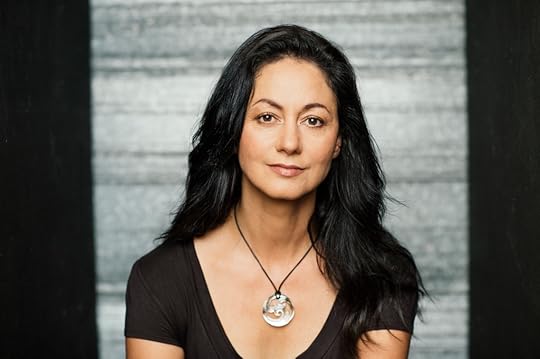
How far has your writing career evolved from when you first began to write to what it is today? Is this in line with your initial expectations?
Although I’d been scribbling little bits of stories for decades, the first time I actually finished anything and showed it to anyone was only ten years ago – in 2011. I submitted an entry to The Age Short Story Award and was shortlisted. That was a huge thrill gave me the confidence to try again the following year, and I was lucky enough to win. From there, I really started exploring the short story form and had more success in awards over the next couple of years.
Eventually I had enough stories for a collection, Fine, which was published by Allen and Unwin in 2016. Until then, I’d seen myself exclusively as a short story writer, but with encouragement from my agent and publisher, I decided to make the leap across to novels. I was very fortunate to be awarded an Australia Council for the Arts residency in Paris and spent six months doing intensive research there and getting a start on the first draft of Small Acts of Defiance. When I finally finished it, I was incredibly nervous about submitting it to my publisher, as I still had enormous doubts about my ability to write a novel. So when they said they loved it, I was very relieved. And now that it’s finished and out in the world, I’m finally starting to feel comfortable about calling myself a novelist.
Are you balancing a different career with your writing? How do you go about making time for your writing within limited hours?
At the moment, I’m taking a bit of time off work to be a full-time writer, which is a huge luxury. Until last year, though, I had to fit my writing around full-time work. Even so, I made sure I dedicated time to writing every day – and Monday to Friday, that meant spending my lunch break sitting in my ‘mobile writing studio’ – aka – my car. Nowadays I get to write whenever I feel inspired – over breakfast, in the middle of the day, in the evening, and more and more often – in the middle of the night. I love those ideas that come to me at 2am. I just turn on the light and scribble them in my notebook, and that gives me a starting point for the next morning. So, I make sure I do something to contribute to my writing every day. That doesn’t always mean adding words to a manuscript though. Often it’s editing, planning, doing research or just some serious thinking about what I’m working on.
What inspired Small Acts of Defiance?
I lived in Paris for 12 years, married a Frenchman, studied at the Sorbonne, taught and had two French-Australian kids. And during those very formative years of my life, I developed a deep love for and knowledge of French language, culture and history. The Second World War was a period that particularly interested me.
One day in the late 1980s, I came across an old lease document from 1941. It was for an apartment belonging to a Jewish family. It was clear from the document that the family had been deported, probably after being denounced. All their belongings had been removed and the apartment had then been allocated to an “Aryan” French family. This was the starting point for my idea for the novel. I wanted to explore how Parisians had reacted to what they saw happening around them during this period. I realised that while there had been a lot written about the Resistance, there was much less about the collaboration that a part of the population had engaged in. But I also knew there were many Parisians who had gone about their daily lives in difficult circumstances, choosing every day how they would react to the terrible events they saw around them and what actions, if any, they would take. In the novel, I wanted to examine what would happen if an ordinary person, a young French-Australian woman who sees herself as an outsider, was forced to live through this period in history. What choices would she make? How would her values be shaped and challenged? How far would she go to stand up to injustice and oppression?
How would you describe Small Acts of Defiance if you could only use 5 words?
Women defying Nazis in Paris.
How much research did you do in order to write this novel? How did you balance the demands of getting the facts right with telling a good story?
I started seriously researching the book during my six-month Australia Council for the Arts residency in 2017/18. My apartment was next door to the National Holocaust Memorial and I spent countless hours there, as well as at the Drancy internment camp memorial, examining historical documents, images and objects, as well as listening to the stories of survivors of the Holocaust. Being bilingual, I was also able to access numerous French archival collections, publications and websites, and speak to historians, artists and ordinary French citizens about their knowledge, experiences and memories of the period.
It was extremely important to me that I treat the facts of this period with respect and care, and bear witness in a truthful way, without glorification, sensationalism, or exaggeration. That is why I chose to focus on ordinary people and their small actions, with their flaws and uncertainties, rather than making them into larger than life heroes.
I hope that by reading this novel, readers will be encouraged to ask themselves what actions they would have taken in occupied Paris, and what actions they’d be willing to take today if they were faced with similar injustices.
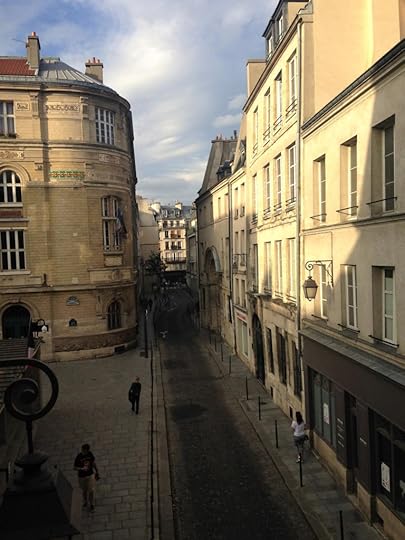 The view from Michelle’s studio in Paris during the Australia Council residency
The view from Michelle’s studio in Paris during the Australia Council residencyHow much planning did you do? Did you plan/plot the entire story from beginning to end, or let it evolve naturally as the writing progressed? In terms of characters, were they already a firm shape in your mind before you started writing or did they develop a personality of their own as the story progressed?
I did try to plan the whole story out before I began writing, but I found it changing quite a bit as I did more research and discovered interesting historical facts that I felt would add to the story. I made a lot of changes to the plot as I progressed and even more in the editing process.
In terms of characters, I always knew that my protagonist would be a young woman and that there would also be other significant female characters. But Lucie’s friend, Aline, was actually a male character in an early draft. I felt, though, that the romantic relationship between them wasn’t working and was also taking focus away from what I felt was more important – Lucie’s growing sense of self-identity and responsibility. I think Lucie’s relationship with Aline allows me to explore a more interesting contrast and evolution.
Where do you normally write? Is it in the same place every day or are you an all over the place writer?
I’m a roving writer – I set myself up with my notebook or laptop wherever the spirit moves me. At home, that often means following the sun – from my bed, to the couch, to the front porch. Or when we’re not in lockdown here in Melbourne, I’ll spend time writing in cafes. I find being surrounded by people stimulating – watching them eat, talk, get on with their lives. There’s also an element of accountability – if I’m being a ‘writer’ in public, I have to look like the real deal – furiously scribbling away like Hemingway in La Closerie des Lilas in Paris.
What do you like to do when you’re not writing?
My spare time is spent on very simple, basic pursuits. I walk my dog, Harvey, for an hour every day along the Yarra River in Warrandyte. I read (but not as much as I should), I listen to podcasts and I let my curiosity lead me down rabbit holes to explore subjects such as neuroscience, evolution, linguistics and sanitation. I’m much too easily distracted, but my curiosity has provided me with many, many ideas for stories.
What authors and types of books do you love the most?
I love both short stories and novels that explore what it is to be human, in all our complexity and messiness and vulnerability. I particularly love books that focus on unusual protagonists, unlikely encounters, and unexpected perspectives on life and relationships. A few examples that come to mind are Olive Kitteridge by Elizabeth Strout, Extinctions by Josephine Wilson and A Burning by Megha Majumdar.
What book is currently on your bedside table?
Ooh … this is embarrassing. As a consequence of being easily distracted, I have a terrible habit of starting one book, hearing about another, getting it and not being able to wait to give it a go. This means that there is a perpetual pile of many, many started, but not-yet-finished books on my bedside table. But the one I’ll be reading tonight is Beloved by Toni Morrison.
Small Acts of Defiance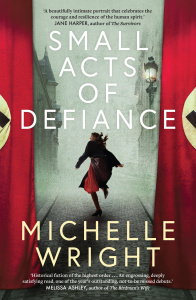
May, 1940: After a bitter tragedy, young Australian woman Lucie and her French mother Yvonne are forced to leave home and seek help from the only family they have left-Lucie’s uncle, Gerard.
As the Second World War engulfs Europe, the two women find themselves trapped in German-occupied Paris, sharing a cramped apartment with the authoritarian Gerard and his extremist views.
Drawing upon her artistic talents, Lucie risks her own safety to engage in small acts of defiance against the occupying forces and the collaborationist French regime, where the authorities reward French citizens for denouncing so-called ‘traitors’ in their community.
Faced with the escalating brutality of anti-Jewish measures, and the indifference of so many of her fellow Parisians, Lucie must decide how far she will go to defend the rights of others.
Published by Allen & Unwin
Released June 2021
June 12, 2021
The Week That Was…
We’re really feeling the winter chill here in Queensland now. For some, it’s a welcome change, for others, it’s too shocking to even talk about and didn’t they move to Queensland to avoid this sort of weather…
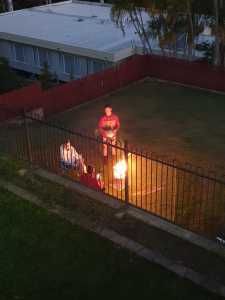
I had a big weekend planned for this weekend. I was going to visit my best friend and meet her new grandson, then attend two sessions I booked a long time ago at the Capricorn Writers Festival, a mere 30 minute drive from my house, and then I was going to catch up with another friend at a cafe in the city for morning tea. I should know better by now than to make all these plans in advance. I should certainly know better than to pay a lot of money in advance for tickets to something. Out of all these lovely planned activities, I only got to do the first, meet my best friend’s grandson – he’s adorable and cuddly and so lovely. But as to the rest of the agenda…pain.
For several medical reasons that I won’t go into specific detail about, I suffer chronic pain that is grounded in being extremely hyperflexive (as in, contortionist type of flexibility). The last six years has seen pain shift about in my body constantly, the cause is all one and the same, regardless of where the pain sits, but I’m never without it. I have learnt to manage this pain for the most part and still go about my business as usual, but when that pain mainfests itself in my head, in the form of a cluster headache, it’s like a shut door on life for several days. Pain relief medication doesn’t work. Sleeping doesn’t work. Staying awake doesn’t work. I just have to exist with it until it decides to disappear, usually 3 to 4 days after onset.
There’s probably no use getting upset or angry about it, but nevertheless, I was pretty upset and angry yesterday at missing those two sessions at the Writers Festival. It’s not just the loss of money (well, it is a bit, those tickets were $90) but I had been really looking forward to finally being able to attend a festival in person after living so remote for so long and always missing out on everything. They were the only sessions of interest to me too, so that festival ship has sailed.
I am used to missing out on things (that’s why I put so much effort into my house being comfortable and aesthetically pleasing – I spend so much time in it), but even so, the disappointment is still there. I only realised yesterday how dependent I’ve come to be on festivals being digital. There’s a lot to be said for livestreaming events as I’m sure there are so many people, for so many different reasons, who can’t attend events despite very much wanting to. Sadly, this festival opted out of livestreaming so I truly did completely miss out this time around.
~~~
Joke of the week:
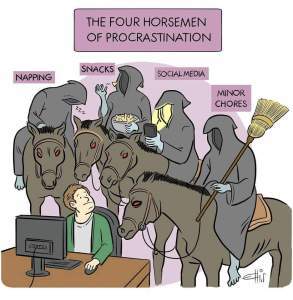
~~~
What I’ve been watching:
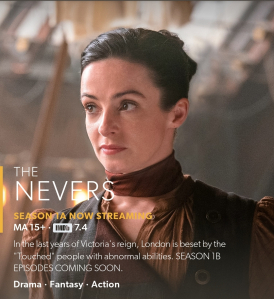
~~~
What I’ve been reading:




~~~
Until next week… 


June 10, 2021
Book Review: Secrets My Father Kept by Rachel Givney
About the Book:
Secrets My Father Kept is a captivating novel about love, sacrifice, secrets and resilience, as the clock inexorably ticks down to a devastating world war.
It’s February 1939. As the Führer edges towards an invasion of Poland, total war looms in Europe.
However, in Krakow, seventeen-year-old Marie Karska’s primary concern is the unexplained disappearance of her mother fifteen years ago, and her father Dominik’s unbreakable silence on the matter. Even his wife’s name is a secret he guards closely.
Dominik, a well-respected and innovative doctor at the local hospital, has devoted his life to caring for his only daughter. Yet a black fear haunts him – over the questionable act he committed to keep Marie safe. And with German troops now marching to the border, he needs to find her a husband. One who will protect her when he no longer can…
But Marie has already met the man she wants to marry: her childhood friend Ben. She’s determined that his Jewish faith won’t stand in the way of their future together. And nor will her father’s refusal to explain the past stop her from unpicking his darkest secret.
Released 1st June 2021
Published by Penguin Random House Australia – Michael Joseph
Thanks is extended to the publisher for the review copy.

My Thoughts:
After having enjoyed Rachel Givney’s debut novel, Jane in Love, I was keen to read her most recent release, particularly as it sounded so very different to her previous work of fiction. I find it so refreshing when authors don’t pigeon-hole themselves into a samey writing existence. Secrets My Father Kept was certainly different to Jane in Love, but it was equally as captivating and memorable.
Atmospheric, written with literary style and apparent wit, Secrets My Father Kept has an astonishing twist towards the end that I didn’t see coming until it was actually happening. The way in which this novel depicts the treatment of, and lack of care and respect for, along with the objectification of women, was at times shocking, distressing, but above all, wholly accurate for the era.
Secrets My Father Kept is an excellent novel. Set in Krakow in 1939, with the shadow of Nazi invasion looming, there is an urgency to the narrative that complimented the themes and plot. This a novel that will stay with me, one I will be pressing into the hands of other readers and recommending to book clubs.
Quotable Quotes:
‘The city in which she lived still scared her. The kings of Europe had all taken their turn with Krakow, moved in, built castles and houses, then departed, leaving the people nothing but ruins, spoiled waterways and a decrepit castle. Dragon gargoyles from five different empires hung from every disintegrating turret and snarled as you passed underneath in the languages of their masters: German, Swedish, Russian. Now the soot from a thousand coal fireplaces stained the buildings black, forming ghouls that danced across them. The smell from the hot sewers wafted up, blowing one’s hair back with its stench. Fog lingered, always. As though aware of the evil lurking, there was a church on every corner.’








